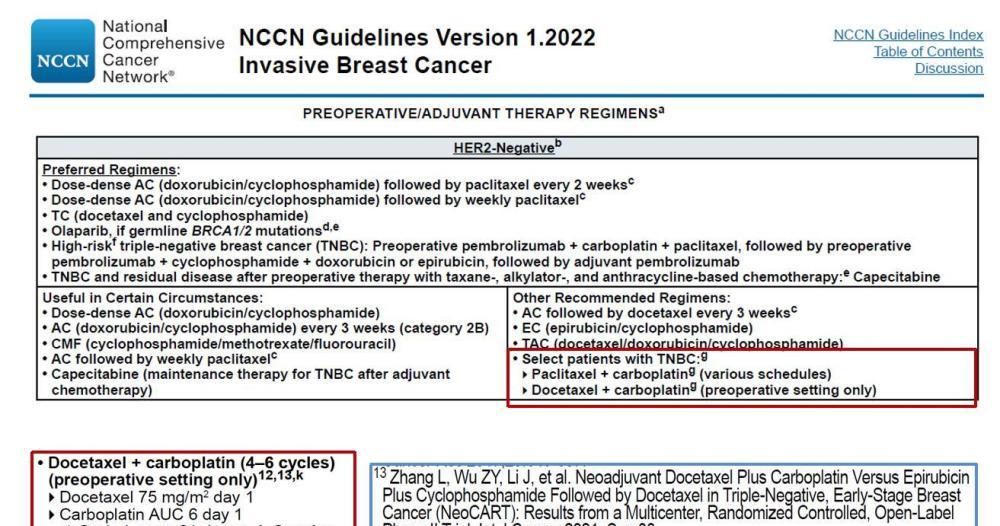Text/Yangcheng Evening News all-media reporter Lin Qingqing
Photo/Courtesy of respondent
"Rewriting guidelines through clinical research is one of the career pursuits of countless clinicians." Professor Wang Kun, vice president of the Cancer Hospital of Guangdong Provincial People's Hospital, said in an interview with reporters, "As an authoritative guideline widely used in international cancer clinical practice, many clinicians have begun to study and follow it from the stage of medical study. Our journey from learning 'follow and running' to being quoted also confirms the continuous improvement of China's medical science level. ”
Chinese medical research data has entered the international stage
Chinese medical research data entered the international clinical guidelines. Recently, the NCCN (National Cancer Synthesis Network), which is the main evidence-based medical basis for global cancer treatment, released the latest version of the Clinical Practice Guidelines for Breast Cancer (2022. V1)。 The clinical research results of neoadjuvant therapy for triple-negative breast cancer, with Professor Wang Kun of the Department of Breast Oncology of Guangdong Provincial People's Hospital as the corresponding author and Dr. Zhang Liulu as the first author, were cited in the chapter of "Neoadjuvant/Adjuvant Therapy" of the NCCN Guidelines, which is the first clinical study of neoadjuvant therapy cited by the NCCN Breast Cancer Clinical Guidelines in China.

Referenced by the NCCN
It is reported that the research results were published in the International Journal of Cancer in September 2021. At the 16th Shanghai International Breast Cancer Forum held on October 21-23, it was selected as one of the "2021 China Breast Cancer Important Clinical Studies". It was subsequently cited by the NCCN guidelines at the end of November. Wang Kun said: "Being able to continuously obtain affirmation in a short period of time is a concrete manifestation of Guangdong Provincial People's Hospital's continuous improvement in strengthening academic research. ”
The preoperative tumor has been completely pathologically relieved, and the total PCR rate exceeds 60%.
The NeoCART study, led by Professor Wang Kun, provides a new neoadjuvant treatment option for triple-negative breast cancer.
The so-called neoadjuvant therapy refers to the anti-tumor therapy before surgery, the main purpose is to reduce the size of the tumor lesion in the patient's body, and then perform surgery. "For patients with early triple-negative breast cancer, the classic neoadjuvant treatment model in the past is anthracycline drugs + cyclophosphamide, and the sequential use of yew chemotherapy drugs. This treatment program, which was identified in the 1990s, has been used for more than 20 years. Because anthracycline has certain cardiac toxic side effects and blood toxicity, if some patients have congestive heart failure, or have previous hypertension, heart disease, etc., after use, it may lead to aggravation of heart disease, that is, it is possible that breast cancer is cured but the heart problem is serious. Wang Kun introduced that in order to solve this problem, scientists have been exploring.
"The new solution we explored, the biggest difference from the standard solution, was the removal of the anthracene ring and the use of yew combined carboplatin." In 2016, Wang Kun's team first conducted a one-arm study without a control group, with a total PCP rate of 57.9%, which was published in Breast Cancer Research and Treatment, an authoritative journal on breast cancer.
Due to the lack of control groups, the team then conducted the current multicenter, randomized controlled, phase II clinical study. After 5 years, in 93 cases of phase II.-III. patients with initial triple-negative breast cancer in 6 research centers across the country, the results showed that the total PCR rate of the 6-cycle "docetaxel (polyene paclitaxel) + carboplatin" protocol in the experimental group was 61.4%, and the total PCR rate of "epirubicin (anthracycline) + cyclophosphamide, sequential use of docetaxel" in the control group was 38.6%.
"In contrast, the new regimen has significantly improved efficacy, controllable toxic side effects, and reduced chemotherapy cycles, which can benefit more patients with early triple-negative breast cancer." Wang Kun explained, "The so-called PCR is the complete remission of pathology, in layman's terms, that is, when the surgery is done, the tumor no longer exists from the pathological point of view. ”
Professor Wang Kun
The research results provide new options and evidence for neoadjuvant therapy for triple-negative breast cancer patients, and bring hope for cure for triple-negative breast cancer patients. In the next step, Wang Kun and his team plan to combine this research result with immunotherapy to further study which chemotherapy combined with immunotherapy regimen can have better efficacy. Currently, the study is recruiting enrolled patients. (For more news, please pay attention to Yangcheng Pie pai.ycwb.com)
Source | Yangcheng Evening News Yangcheng Pie
Editor-in-charge | Yu Yanhong